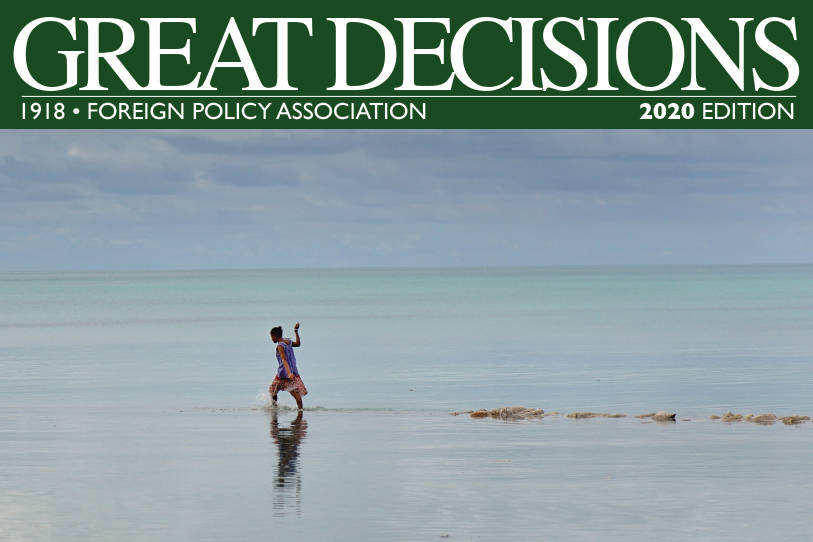A nationally renowned program is coming to the San Juan Island Library for those interested in discussing national and international topics.
New this year, the library is participating in a nationwide program titled “Great Decisions.” Throughout 2020, the library will host discussions about eight pre-determined topics from nuclear security to trade to the future of Europe.
“The Great Decisions Program has been running successfully in many libraries around the country for over 50 years,” Leslie Baker, library assistant director and adult services manager, said. “The feedback from other libraries was overwhelmingly positive and we felt the need to offer programming that addressed some of the important issues facing us today.”
The first Great Decisions conversation is scheduled for 7-9:30 p.m. on Monday, Jan. 27. The topic is climate change and global order.
“Climate change has become one of the defining issues of our time. As much of the world bands together to come up with a plan, the U.S. remains the notable holdout,” the discussion description said. “What is the rest of the world doing to combat climate change? What impact will the effects of climate change have on global geopolitics?”
Baker encourages anyone who is interested in learning more about important issues facing the world today and in talking with other engaged people in an adult and civil manner to attend the discussions. The goal of the gatherings is not to come to a consensus, she added. Participants will not be attempting to change the minds of others and there will be a mutual respect for each member’s experiences, value system and beliefs, she explained.
The focus of the Great Decisions discussion group, Baker explained, is the critical examination of all issues and opinions with each being recognized as equally valid.
“We hope that the Great Decisions participants will consider discussion groups a ‘safe environment’ because they provide everyone who wishes to do so with the opportunity to speak,” Baker said. “Each participant’s point of view carries equal weight and everyone is encouraged to share opinions and ideas.”
The library will encourage participants to fill out opinion ballots on the various topics, Baker explained. The ballots will then be sent to the Foreign Policy Association to be included in the National Opinion Ballot report. The National Opinion Ballot Report is presented to the White House; members of Congress; the departments of State and Defense; the national media; and participants in the Great Decisions Discussion Program, Baker said.
Because Great Decisions requires a moderator, who must be able to do the necessary reading, discussion topic preparation, staying abreast of topical and current events, and regular scheduling, the library reached out to patron Roger Morris for his assistance, Baker explained.
“It is a lot of work to add to our already overworked and time-poor staff and we felt that we needed to have someone at the helm who really had a grasp of current affairs,” Baker said. “Roger is uniquely qualified to lead these talks as he is the author of several critically acclaimed books on American politics.”
Morris wrote the book “Richard Milhous Nixon: The Rise of an American Politician, 1913-1952,” which was a winner of the National Book Award Silver Medal, a finalist for the National Critics Circle Award in Biography, and a New York Times “Notable Book of the Year.” He also authored “Partners in Power: The Clintons and Their America,” among others.
Morris is a former Lannan Foundation Literary Fellow, two-time University of Washington Helen Riaboff Whiteley Center Scholar, a Guggenheim Fellow, as well as a Fellow of the Society of American Historians and the National Endowment for the Humanities. He was born and raised in the Midwest, graduated from the University of Missouri, and holds a doctorate in government from Harvard. He also served in the United States Foreign Service, on the White House Staff, and on the Senior Staff of the National Security Council.
“Issues that face us today are wide-ranging and emotionally charged. And now, arguably more than ever, politics divide us,” Baker said.



